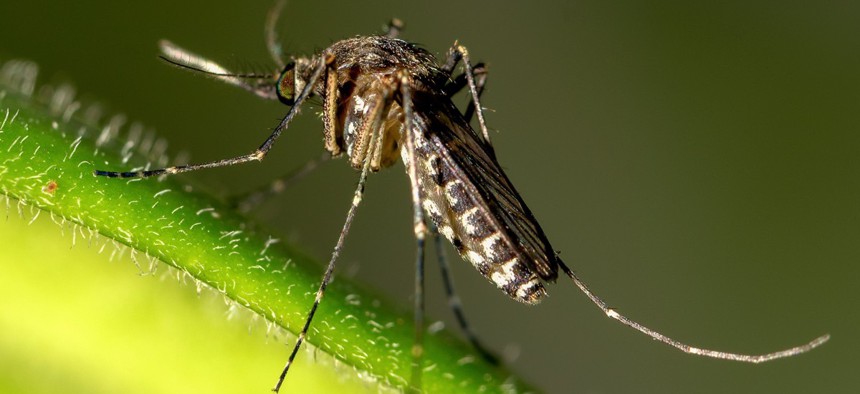1st Likely Cases of Zika Transmitted by Mosquitoes on U.S. Mainland in Florida

Four people are said to be affected, according to Gov. Rick Scott’s office.
Four cases of Zika virus in Miami-Dade and Broward counties are likely from local mosquitoes, Florida’s health department said Friday, marking what would be the first known instances of people becoming infected in the mainland United States with the disease, which can cause severe birth defects.
The Florida Department of Health believes that transmission of the virus is occurring in a roughly one square-mile area north of downtown Miami, between Interstate 95 and Biscayne Bay, which encompasses a neighborhood called Wynwood. As of late Friday morning, no trapped mosquitoes had tested positive for the virus and the health department was collecting urine samples in the area, as part of door-to-door outreach.
“We learned today that four people in our state likely have the Zika virus as a result of a mosquito bite,” Gov. Rick Scott said in a statement on Friday. The governor also said he had directed the health department to begin contracting immediately with commercial pest control companies to increase spraying and other mosquito abatement efforts.
Florida Agriculture and Consumer Services Commissioner Adam Putnam urged residents to drain standing water from their property to eliminate potential mosquito breeding grounds.
Last month, Scott used emergency executive authority to allocate $26.2 million in state funds for work related to Zika preparedness, prevention and response.
Zika can be transmitted through mosquito bites, from a pregnant woman to her fetus, or by having sex with a person who has become infected, according to the Centers for Disease Control and Prevention. The CDC says it is very likely the disease could spread through blood transfusions as well, but that this has not been confirmed.
If pregnant women contract the virus, it can cause severe birth defects for their babies, including microcephaly, a condition in which a child’s head is smaller than expected. Babies with microcephaly often have smaller brains that can develop improperly.
Of the four Florida cases, three involve men, and one involves a woman, the governor’s office said. Scott’s office did not specify whether the woman was pregnant.
For many people, Zika symptoms tend to be mild and can go unnoticed, according to the CDC. Common symptoms include fever, rashes, joint pain, red eyes, muscle pain and headaches.
The type of mosquito mostly responsible for spreading Zika is the Aedes species, information from the CDC says. The insects are aggressive during the day, but also active at night.
Active Zika transmission from mosquito bites has been seen previously in dozens of countries throughout central and South America.
Before Friday, state figures show that Florida had 386 documented travel-related cases of Zika, where people had become infected outside of the United States. Of these 55 involved pregnant women. The first travel-related case in the state surfaced in February.
Bill Lucia is a Reporter for Government Executive’s Route Fifty and is based in Washington, D.C.
NEXT STORY: California prequalifies vendor pool for Child Welfare System overhaul






